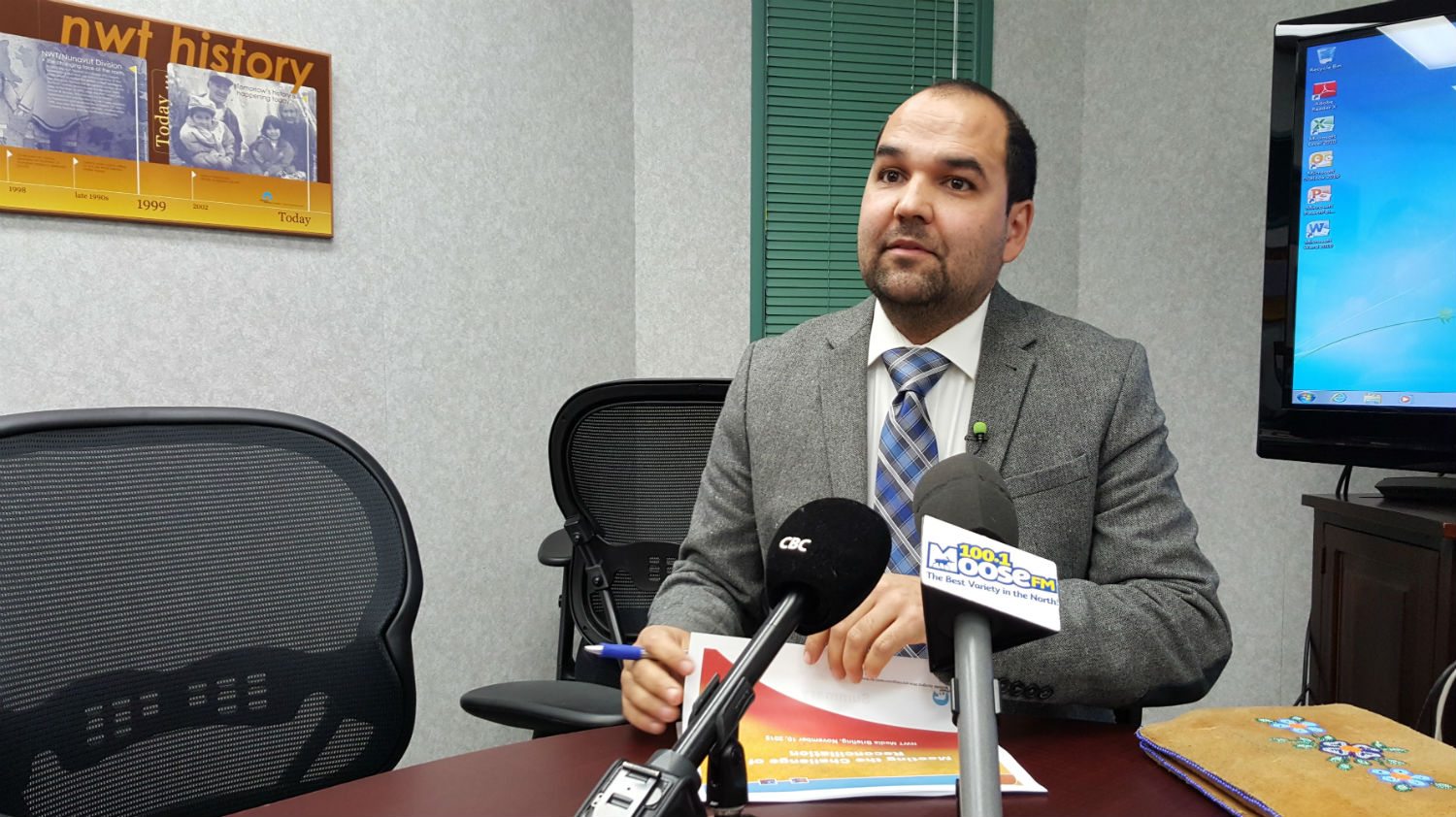The territorial government’s work to implement recommendations of the Truth and Reconciliation Commission (TRC) has been frozen by this month’s election.
The TRC issued 94 calls to action in June after six years examining the impact of residential schools in Canada. The NWT published what it called an “initial response” last month, which largely lists programs and policies already in place prior to the TRC’s announcement.
The Department of Aboriginal Affairs and Intergovernmental Relations, which is coordinating the territory’s response to the TRC, says further work can’t happen until a new government is formed after election day on November 23.
“We’re a little bit constrained because a lot of the actions will actually be decisions of the next government,” said Martin Goldney, deputy minister of the department.
“It’s difficult at this point to talk about concrete steps. There is, though, the commitment to take concrete steps. There are a number of recommendations where the GNWT supports the objectives – but needs to figure out how.”
In full: Northwest Territories’ initial response to the TRC’s recommendations (pdf)
Despite the delay caused by the change in government, Marie Wilson – one of the TRC’s three commissioners – said the territory remained “a national leader in redress”.
Speaking at the legislature on Tuesday, during an event hosted by Dene Nahjo and the Institute of Public Administration of Canada’s NWT branch, Wilson said: “The North, and the NWT in particular, is already leading the country in many areas of [the TRC recommendations’] implementation.
“I almost hesitate to say this in case we get comfortable on our laurels.
“The NWT, with its own unique and long history of residential schools, has emerged as a national leader in redress. That’s important to acknowledge.”
In full: Truth and Reconciliation Commission’s calls to action (pdf)
Until MLAs are elected and ministers appointed, there will be no timeline for the implementation of any new territorial measures to support reconciliation. The territory is not sure if any further written response to the TRC’s recommendations will be issued.
October’s initial response followed a discussion among GNWT departments to identify work being done that meets the TRC’s objectives. Little consultation has yet taken place outside the territorial government, for example with other governments at municipal, provincial, Aboriginal or federal level.
“We expect this to be part of an ongoing national discussion,” said Goldney. “We all appreciate more can be done.”
The government’s initial response identified cultural awareness training for staff as one example of a GNWT policy already addressing issues raised by the TRC.
Goldney also picked out the residential school curriculum, which mandates that all students learn the history and effects of residential schools in the territory, and the territory’s support for Aboriginal languages.
Wilson, in turn, said the territory had been the first to offer an apology to residential school survivors and the first to recognize National Aboriginal Day.
The NWT has Canada’s largest number of residential school survivors per capita.




